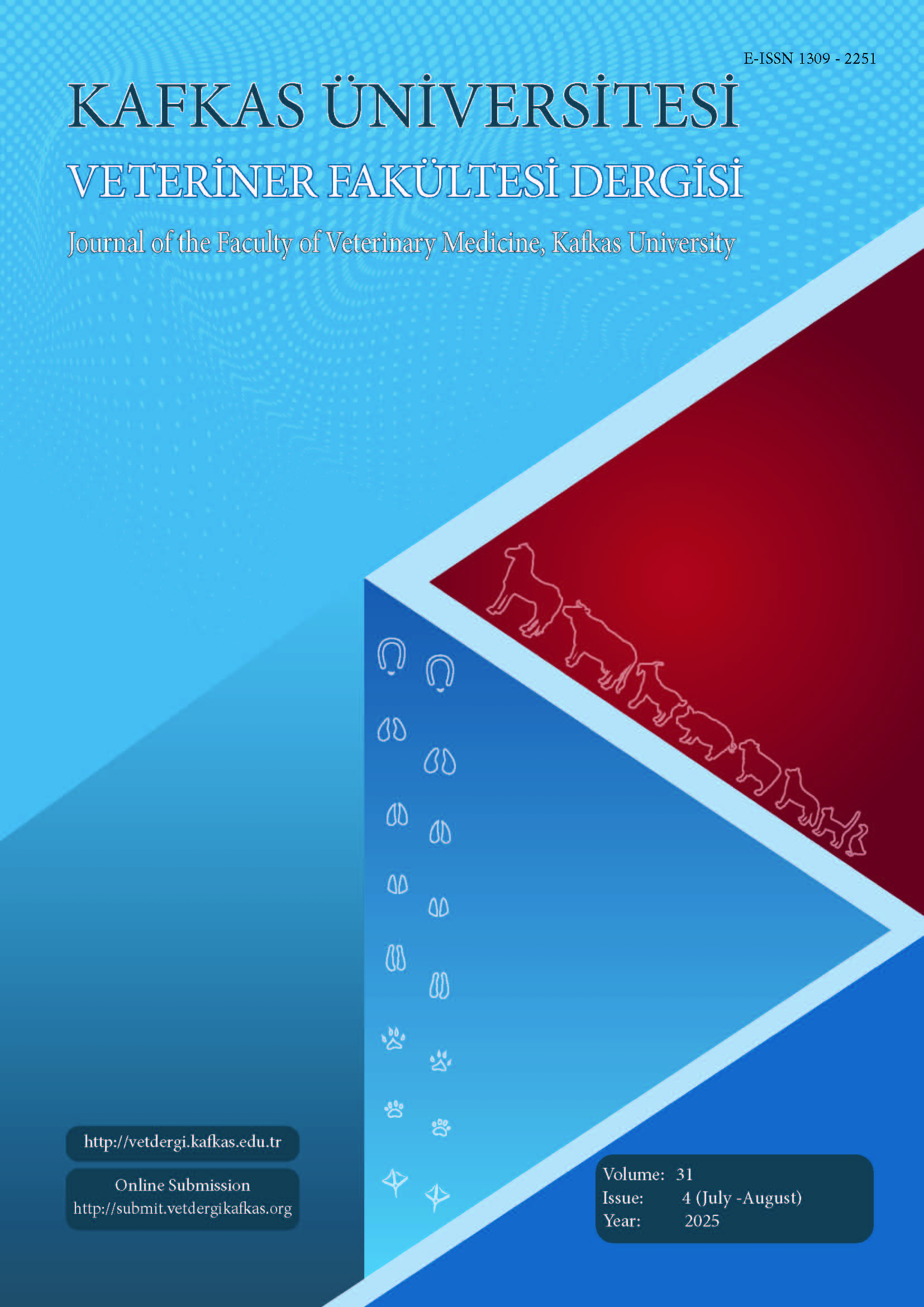
This journal is licensed under a Creative Commons Attribution-NonCommercial 4.0 International License
Kafkas Üniversitesi Veteriner Fakültesi Dergisi
2025 , Vol 31 , Issue 4
Mechanistic Insights into the Mitigating Role of Beta-Caryophyllene on Cadmium-Induced Liver Injury
1Department of Physiology, Faculty of Veterinary Medicine, Atatürk University, TR-25200 Erzurum - TÜRKİYE2Department of Pathology, Faculty of Veterinary Medicine, Atatürk University, TR- 25200 Erzurum - TÜRKİYE DOI : 10.9775/kvfd.2025.34135 Cadmium (Cd) is a toxic heavy metal that can cause severe hepatotoxicity in the body. This study investigates the hepatoprotective effects of Beta-Caryophyllene (BCP), a natural sesquiterpene, against Cd-induced liver injury. In the study, the protective effects of BCP on biological processes such as oxidative stress, inflammation and apoptosis were investigated through TLR4/NF-κB, SIRT1/KEAP1/Nrf2/HO-1 and Bax/ Bcl-2/Caspase3 signaling pathways. For this purpose, 50 male rats were divided into 5 groups: Control, Cd, BCP100+Cd, BCP200+Cd and BCP200, 10 in each group. At the end of the study, it was determined that Cd exposure caused damage to cells by increasing lipid peroxidation, oxidative stress and inflammation in liver tissue. However, BCP treatment was found to reduce oxidative damage by increasing antioxidant enzyme activities (SOD, GSH, CAT) and reducing lipid peroxidation (MDA). Furthermore, it was determined that BCP lowered proinflammatory cytokine levels (TNF-α, IL-1β) by inhibiting TLR4/NF-κB signaling activity, while also increasing anti-inflammatory IL- 10 levels. It was also observed that BCP inhibits the suppression of Nrf2 through KEAP1 by activating the Nrf2 signaling pathway, resulting in elevated levels of SIRT and HO-1. In the analyses of apoptosis, it was determined that BCP inhibited Caspase3 activity and reduced apoptosis in liver cells by balancing the Bax/Bcl-2 ratio. These findings suggest that BCP provides potent protection against Cd-induced liver toxicity by regulating various signaling pathways and could potentially be used as a hepatoprotective agent. Keywords : Apoptosis, Beta Caryophyllene, Cadmium, Hepatotoxicity, Inflammation, Oxidative stress











